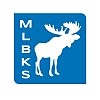In many cases, my clients retained my services after their previous bookkeeper changed careers, moved, or retired. As such, I get to see the work product of many other bookkeepers.
It has come to my attention that a lot of bookkeepers are misusing the bank error feature, when doing the monthly bank reconciliations. In many instances, the bank error feature was used to record bookkeeping errors. The bank errors feature should only be used to record errors actually made by the teller or bank, and nothing else.
Obviously, no one likes to admit they have made a mistake, but we are all human beings, and therefore fallible.
PCLaw has build in checks and balances to prevent things like overdrawn client trust ledgers while writing trust cheques. Bookkeeping errors do occur more often when using handwritten cheques, so I would encourage the printing of your cheques if possible. With handwritten cheques, the entry is often made after the fact, and only then is the error revealed.
When you make a mistake, resist the urge to record it as a bank error. Instead, record the events as they actually occurred. Then enter a correcting entry. That way, the transactions appear on the bank journal and other reports, making it easy to monitor outstanding issues. Entering the mistake as a bank error means that it is not searchable, and therefore much more likely to be forgotten until the next month’s bank reconciliation.
For situations involving overdrawn client trust ledgers, PCLaw should prevent you from entering the transaction. But, since the ledger is overdrawn, you will need to return some funds to trust, to at least bring the ledger back to a zero balance. Simply enter the required general to trust transfer first, then you can enter the mistaken transaction.
As always, I invite your comments and suggestions for future post topics. Next week – Year-end Clean-up in PCLaw.
Clyde
![]()

No comments:
Post a Comment
I welcome any comments or feedback.
Do you have a question? Do you have a topic for a future article?